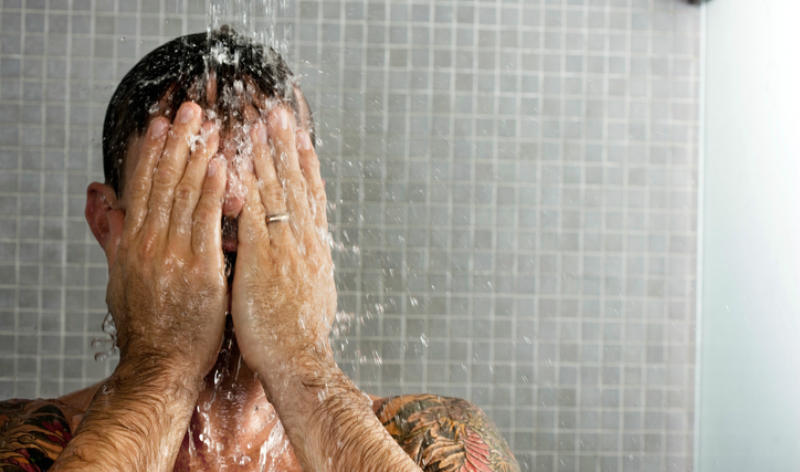
Some people believe that hot showers are bad for your blood pressure, while others may counter this and state that cold showers are no better since it can make you sick. While there are pros and cons in both hot and cold showers, one isn’t necessarily better than the other; our bodies just need either.
Besides, it’s just impossible to shower comfortably with cold water during chilly weather, so a working water heater and sewer lines will always be necessities in every home. Hence, instead of debating whether we should shower only in cold or hot water, what we should be asking is, “When is a hot shower necessary?” or, “Are daily hot showers safe?”
Why We Love Hot Showers
When we get home from a tiring day at work, nothing sounds more relaxing than a hot bath or shower. After every steaming shower or bath, our muscles feel less tense, which helps us fall asleep faster.
That happens because hot showers activate our parasympathetic nervous system, which is also known as the “rest and digest” system, and it’s the one in charge of conserving our energy, slowing down our heart rate, and relaxing the sphincter muscles in our gastrointestinal tract.
Hot showers also help relieve respiratory symptoms, like a cold. The high temperatures and humidity open up our airways, loosen the trapped phlegm, and drain our nasal passages. You can even decongest your sinuses by simply leaning over a faucet running hot water; just drape a towel over your head so that you can breathe in the moist air.
How Safe are Hot Showers?
Hot showers may be irresistible, but we have to suppress the temptation to have it every day, especially if our skin and hair are already suffering its effects, or if we’re dealing with certain skin conditions.
According to board-certified dermatologist Shari Marchbien, who is based in New York, hot showers can aggravate any skin condition characterized by a defective skin barrier. The hot water can strip off the sebum, healthy fats, and other natural oils that help hydrate our skin.
A sign of our skin being robbed off of hydration are the wrinkles we always see on our fingers after a long swim or hot shower.
Hence, if you have eczema, psoriasis, acne, rosacea, or excessively dry skin, you are advised to steer clear of daily hot showers. You can do it moderately, particularly if your muscles are tired, and if you’re down with a cold or flu.
As for the hair, daily hot showers may affect its healthy growth, because just like the rest of our skins, hot water also strips off the scalp’s natural oils, possibly causing inflammation, which is the one that impedes hair growth.
Hot showers aren’t safe as well if you have high blood pressure or cardiovascular disease, as being exposed to high temperatures may worsen your condition.
How Hot Should Hot Showers Be, and How Often?
To make hot showers wholly safe and healthy, make the water lukewarm instead of outright hot. If you make it too cold, your body temperature may drop below 89.96°F (32.2°C), which is also unsafe.
If you can stand being drenched in cold water or at least a minute, you may do that, too, and gradually increase the water’s temperature for as warm as you can handle on the next minute. Alternate between a minute of cold and hot water for three to five cycles, so that you’d get the benefits from both cold and hot showers.
Showering like such daily or regularly should be safe for your skin, hair, and health. By following this technique, you’d no longer feel trapped between a refreshing cold shower and a calming hot one.
Meta Title: How and When Should You Have a Hot Shower?
Meta Description: Some people debate whether a hot shower is safer than a cold one or vice versa. What is the truth, and what’s the catch in a relaxing hot one? Learn more.
Tags:





